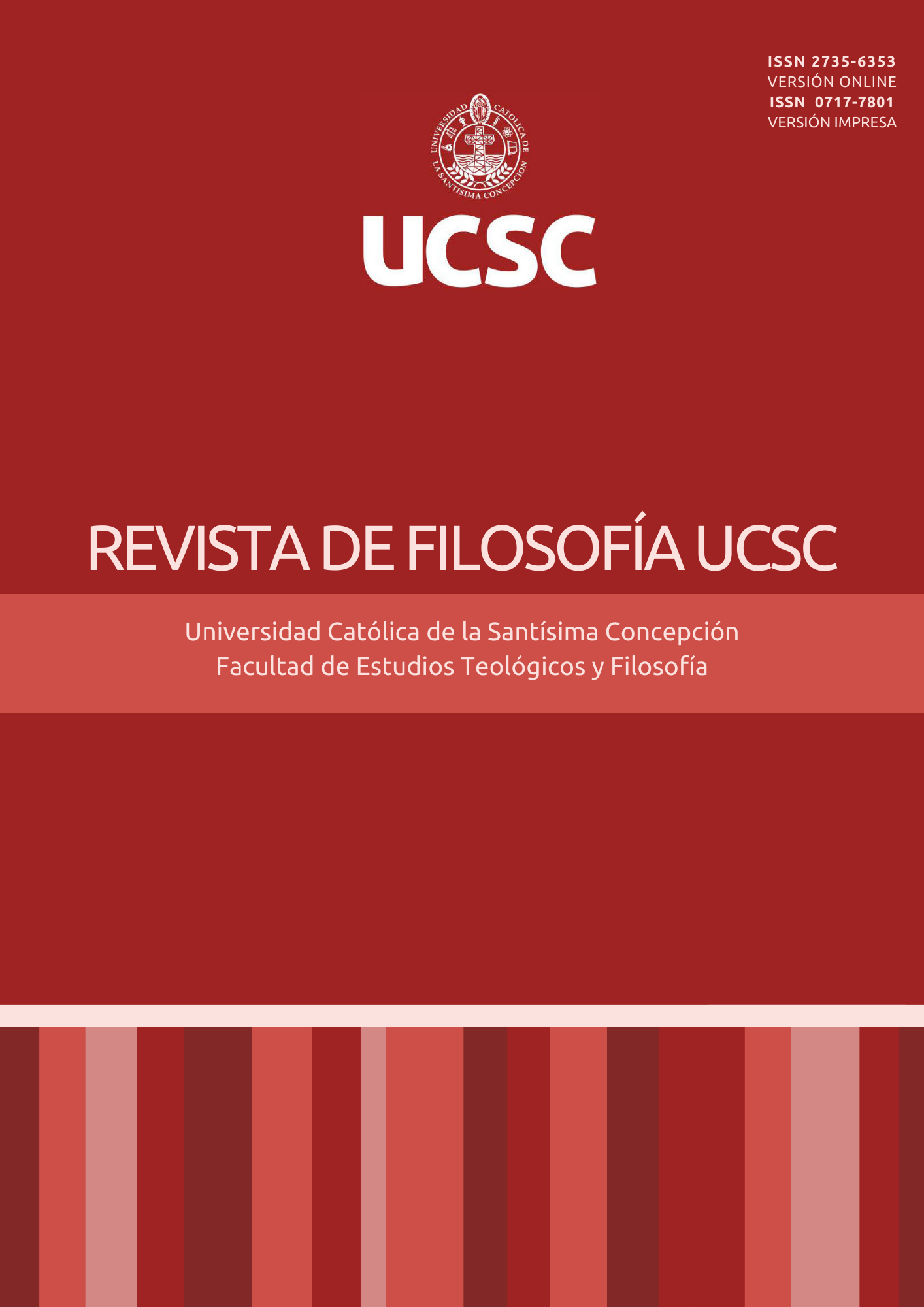Libertad y sostenibilidad
Contenido principal del artículo
Resumen
Este artículo examina el conflicto percibido entre libertad y sostenibilidad, proponiendo que una comprensión cualitativa de la libertad puede integrar intereses liberales y ecológicos. Se critica la noción de libertad cuantitativa, centrada en maximizar opciones individuales sin considerar su contenido o propósito, por ignorar aspectos esenciales como los derechos de futuras generaciones y la sostenibilidad ecológica. En contraste, se argumenta que la libertad cualitativa, que valora opciones en función de su contribución a la autonomía y dignidad humanas, ofrece una solución más integral. Esta perspectiva prioriza opciones que promuevan la libertad de todos, incluyendo futuras generaciones, y sugiere que algunas restricciones pueden ser necesarias para mejorar las oportunidades de vida sostenibles. Se concluye que la libertad cualitativa debe preceder la consideración cuantitativa de opciones, permitiendo ver las políticas de sostenibilidad no como limitaciones de la libertad, sino como mejoras cualitativas que garantizan mejores oportunidades para todos, ahora y en el futuro.
Detalles del artículo
Sección

Esta obra está bajo una licencia internacional Creative Commons Atribución-NoComercial 4.0.
La Revista de Filosofía UCSC es de acceso abierto y no cobra por publicar en ella. Además, regula su política de Derechos de Autor y de acceso a sus archivos de acuerdo con la Licencia Pública Attribution-NonCommercial 4.0 International (CC BY-NC 4.0), por tanto, se permite compartir (reproducir y distribuir el material en cualquier medio o formato) y adaptar (modificar, transformar y crear a partir del material) siempre y cuando se de crédito adecuadamente, se incluya la cita con los datos correspondientes. Además, no está permitido utilizar el material con fines lucrativos.
Cómo citar
Referencias
Arneson, R. (2009). Meaningful work and market socialism revisited. Analysis and Criticism-Journal of the Social Sciences, 31(1). DOI: https://doi.org/10.1515/auk-2009-0109
Bentham, J. (1970). Of laws in general. H. L. A. Hart.
Briggs, X. (2008). Democracy as problem solving: Civic capacity in communities across the globe. MIT DOI: https://doi.org/10.7551/mitpress/9780262026413.001.0001
Button, M. E. (2008). Contract, culture and citizenship: Transformative liberalism from Hobbes to Rawls. Penn. DOI: https://doi.org/10.1515/9780271056623
Carter, I. (1999). A measure of freedom. Oxford. DOI: https://doi.org/10.1093/0198294530.001.0001
Christman, J. (2005). "Saving positive freedom." Political Theory, 33(1), 79-88. DOI: https://doi.org/10.1177/0090591704271302
Connolly, W. E. (1993). The terms of political discourse. Oxford.
Dierksmeier, C. (2016). Reframing economic ethics. The philosophical foundations of humanistic management. Palgrave Macmillan. DOI: https://doi.org/10.1007/978-3-319-32300-8
Dierksmeier, C. (2018). "Qualitative freedom and cosmopolitan responsibility." Humanistic Management Journal, 2(2), 109-123. DOI: https://doi.org/10.1007/s41463-017-0029-3
Dierksmeier, C. (2019). Qualitative freedom – Autonomy in cosmopolitan responsibility. Springer. DOI: https://doi.org/10.1007/978-3-030-04723-8
Dworkin, G. (1988). The theory and practice of autonomy. Cambridge University Press. DOI: https://doi.org/10.1017/CBO9780511625206
Dworkin, R. (1977). Taking rights seriously. Harvard University Press.
Feinberg, J. (1992). Freedom and fulfillment: Philosophical essays. Princeton. DOI: https://doi.org/10.1515/9780691218144
Flathman, R. E. (1987). The philosophy and politics of freedom. University Chicago Press.
Friedman, M., & Friedman, R. D. (1990). Free to choose: A personal statement. Mariner.
Fuhrmann, R. D. (1999). Der Bürger der Bürgergesellschaft: "Bürgergutachten" aufgrund von fünf "Bürgergutachtenzellen" nach dem Verfahren "Planungszelle". Springer.
Habermas, J. (1961). On the concept of political participation. Luchterhand.
Hobbes, T. (1996). Leviathan. Menston. DOI: https://doi.org/10.1017/CBO9780511808166.006
Howaldt, J., & Schwarz, M. (2010). Social innovation in focus: Sketch of a research concept inspired by social theory. Bielefeld.
Kramer, M. H. (2003). The quality of freedom. Oxford. DOI: https://doi.org/10.1093/0199247560.001.0001
Kristjánsson, K. (1996). Social freedom: The responsibility view. Cambridge University Press. DOI: https://doi.org/10.1017/CBO9780511627910
Laski, H. (1962). The rise of European liberalism. Routledge.
MacGilvray, E. (2011). The invention of market freedom. Cambridge University Press. DOI: https://doi.org/10.1017/CBO9780511842351
Marx, K., & Engels, F. (1988). Werke. Dietz.
Megone, C. (1987). One concept of liberty. Political Studies, 35(4), 611-622. DOI: https://doi.org/10.1111/j.1467-9248.1987.tb00208.x
Miller, D. (1985). Reply to Oppenheim. Ethics, 95(2), 310-314. DOI: https://doi.org/10.1086/292632
Nelson, E. (2005). Liberty: One concept too many? Political Theory, 33(1), 58-78. DOI: https://doi.org/10.1177/0090591704268179
Nussbaum, M. (2013). Creating capabilities. Harvard University Press. DOI: https://doi.org/10.2307/j.ctt2jbt31
O'Neill, O. (1989). Constructions of reason: Explorations of Kant's practical philosophy. Cambridge University Press. DOI: https://doi.org/10.1017/CBO9781139173773
Oppenheim, F. (1985). Constraints on freedom as a descriptive concept. Ethics, 95(2), 305-309. DOI: https://doi.org/10.1086/292631
Quine, W. v. O. (1987). Quiddities: An intermittently philosophical dictionary. Harvard University Press.
Rösler, P., & Lindner, C. (Eds.). (2009). Freiheit: gefühlt - gedacht - gelebt. Liberale Beiträge zu einer Wertediskussion. Wiesbaden. DOI: https://doi.org/10.1007/978-3-531-91532-6
Thrasher, J. (2014). John Tomasi: Free market fairness. Public Choice, 159(1-2), 309-311. DOI: https://doi.org/10.1007/s11127-013-0074-x




